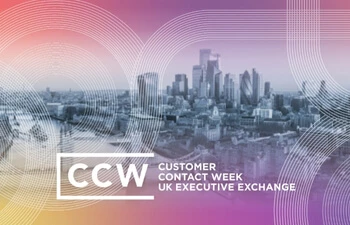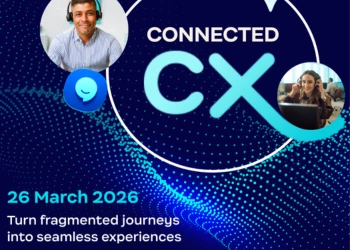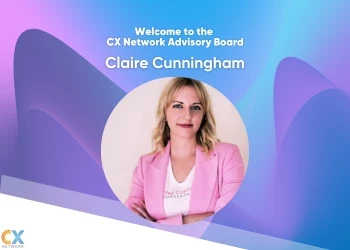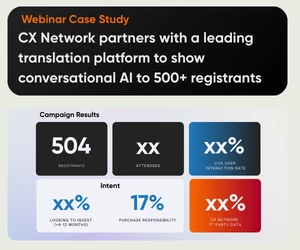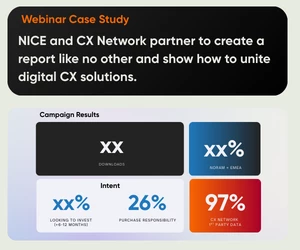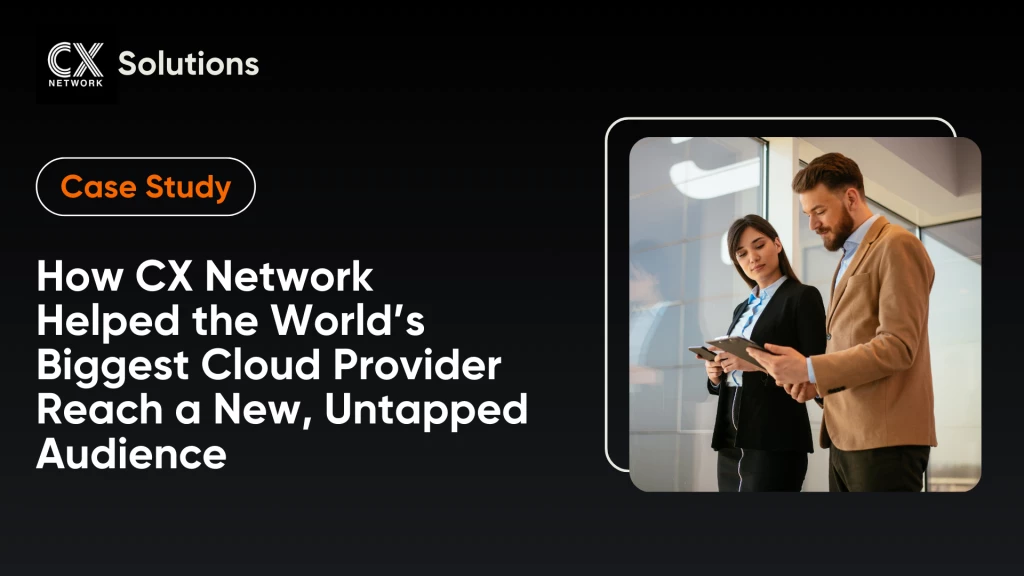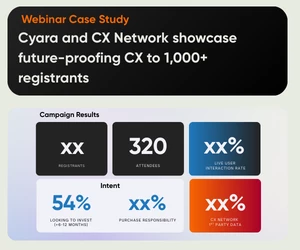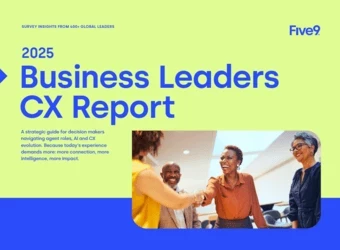Measuring the magic flywheel of customer love with Fred Reichheld
CX Network catches up with Bain fellow and best-selling author Fred Reichheld to find out about the new NPS metric he believes will take businesses through the next decade
Add bookmark
CX Network's Melanie Mingas speaks to best-selling author Fred Reichheld about the new customer experience metric he believes will take businesses through the next decade.
Since Fred Reichheld’s Net Promoter Score (NPS) was first introduced in 1993, the world of CX has been gifted with NPS Prism, the benchmarking platform to grow loyalty and sales, and NPSx, a new digital venture focused on customer experience training and certification.
In the current environment of fickle customers and tight margins, however, the pressures on staff and supply chains are magnified in new ways and business priorities are changing in response.
Furthermore, many organizations are finding there is a more tangible connection between financial performance and CX than previously thought, but they still cannot quite put their finger on it. As CX Network has found in its own research, there are many challenges in adequately demonstrating the ROI of CX initiatives.
In December 2021 Reichheld released his latest book, Winning on Purpose: The Unbeatable Strategy of Loving Customers. In it he introduced the Earned Growth Rate (EGR), an accounting measure which complements the NPS and addresses these points.
Bain fellow and best-selling author Reichheld says: “Accounting is the only way to X-ray the health of a business at present – primarily. But that leads you down a path of ‘profits are purpose’, because that is what accounting solves and that mindset is reinforced by business schools, business journalists, everyone.”
To explain how we got to this point, however, it is necessary to “go back in history before I get to the future”.
The EGR story
The original NPS was inspired by the recognition that companies with “remarkable economic performance” achieved that as a result of earning the loyalty of customers. “That created an economic flywheel,” Reichheld says.
One of the companies to catch his eye was Enterprise Rent-a-Car and the work of then CEO Andy Taylor. Son of the founder Jack Taylor, Andy nurtured the family business from a single branch in St. Louis, Missouri, to become “the largest car rental company on Earth”.
Recalling his intrigue, Reichheld says: “Enterprise Rent-a-Car had done the impossible. A capital-intensive business with huge competitors like Hertz, Eurocar and Avis. It was not a profitable business at the time but they had enormous growth and if you use the standard business thinking it is a miracle story.”
In his quest to create an infectious customer experience Taylor created a two-question survey, which Reichheld refers to as the forefather of NPS. It was unlinked to KPIs or compensation but heavily linked to emotions that would engage both customers and employees and it allowed Taylor to refine the customer experience.
“Treat your customers right, so they come back for more and bring their friends.”
In Taylor’s words the only way to grow a profitable business is to “treat your customers right, so they come back for more and bring their friends”.
Reichheld says: “I sort of unpacked that [statement] a little bit at the time, but with earned growth I finally get it. Companies still to this day do not measure that magic flywheel of how much of your business is coming from existing customers buying more and referring their friends.
“Accounting does not measure that molecule of true, prosperous, sustainable growth,” he explains.
This economic reality was first explored in Reichheld’s 1996 book The Loyalty Effect, but while his words were being read, they were not entirely being followed. Measuring customer loyalty through a lifetime value figure is meaningful but it is complex. This time things are different.
“Earned growth is a very pragmatic step toward that objective of squaring up accounting with the power of improving customer loyalty and getting that flywheel spinning,” Reichheld says.
It is also one of the disciplines covered in the professional development offed through NPSx and Reichheld is firm in the belief that this is the system to take businesses through the next decade.
Finding purpose beyond profit
Back to that purpose and a spoiler alert – it is not profit.
In short, the reason businesses exist in the world today is to make their customers’ lives better. As Reichheld sees it, this is the only way to make the employees happy while generating sustainable profit and economic value for investors. Put the profit first and the business becomes unsustainable and the flywheel does not spin.
“But 90 percent of companies do not buy that today, they have some other purpose which ignores the purpose of the flywheel,” he says.
The present global trading environment is mired by a web of issues culminating in downward pressure on prices and staff and a growing number of unhappy customers. In fact, complaints in the UK reached an all-time high in July this year.
In light of these conditions many are looking to make improvements that could safeguard their hard-earned NPS. But rather than seeking quick wins, organizations should assess their purpose.
Reichheld says: “Think seriously about whether your purpose should be to make customers’ lives better. If that is your purpose live up to treating everybody in the corporate community according to golden rule standards – treat people as you would like to see your loved ones treated. That is the highest standard in human affairs.”
“Think seriously about whether your purpose should be to make customers’ lives better."
According to Reichheld, one of the most powerful ways to measure the success of this is to track the EGR against that of competitors. It is the corporate way of asking “how good is my flywheel?”
“We usually use language that is a bit more palatable for businesspeople, like enrich customers’ lives, solve problems or put smiles on their faces. Loving your customer is at the core of this and your flywheel health is the reflection of that,” says Reichheld.
The ability to compare in this way allows enterprises to experiment with improvements to see who is doing what best. In identifying areas for improvement, Reichheld says there are always lessons to be learned from employees and customers.
“Prioritize that and figure out how to invest in the most important ones. It is not a simple answer, but it is the right answer,” he says.
All you need is (customer) love
While the words are uncomplicated the ideas driving them are complex. In short, Reichheld has created a scientific formula for measuring “customer love” and linking it to financial performance.
It would be easy to underestimate the cultural and mental shift that must accompany this. But it is worth getting to grips with. The flywheel effect Reichheld describes can bring about “wonderful second, third and fourth order benefits, including economics”, he says.
“Companies need to recognize that love is loyalty,” Reichheld explains. “When customers feel love then they trust their organization and their suppliers are watching out for their best interests. They are innovating and investing to make customer lives better.”
“When customers feel love then they trust their organization and their suppliers are watching out for their best interests."
This is not a side of the business world one often hears about, but the old approach of reaching out to NPS detractors is no longer enough to move the needle on customer satisfaction. This point is explored in the chapter Be remarkable.
“The real goal is how can I innovate ways to make people feel so special and solve their problems in such remarkable ways they love it and tell all their friends about it? That is where our future is,” Reichheld says.
Part of Reichheld’s inspiration derives from observing communities – a church group, the local neighborhood, a rotary – and for him the business world is a community based on moral foundations and underlying principles. Regardless of the type of community, however, the most successful ones all have something in common: they are serious about the flywheel effect and are willing to make the changes necessary to power it.

